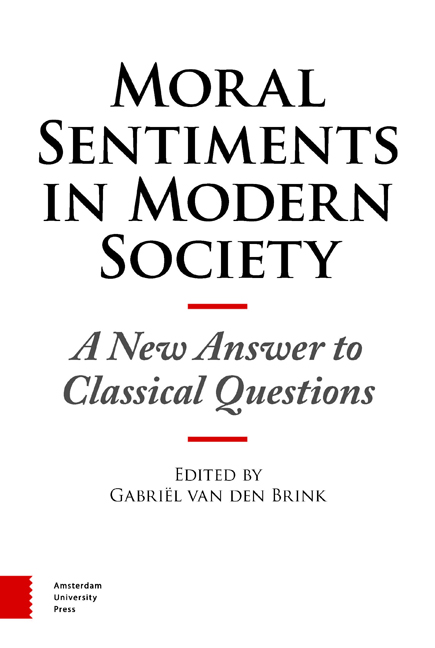Book contents
8 - Moral Imagination at work
Published online by Cambridge University Press: 02 February 2021
Summary
Moral reflections have always been popular in the Netherlands. This was already the case in the seventeenth century, when many citizens became concerned about the wealth that had suddenly befallen them. A telling example is the work of Jacob Cats, the then grand pensionary of the States of Holland. Cats wrote a book on marriage, of which many editions were published and which was received well by the general public. The book was richly embellished with emblems and engravings, and was translated into French, German and English soon after its publication in Dutch. A connoisseur of the classics, Cats developed an erudite vision of the public significance of home and family. He used a broad repertoire of stories, anecdotes and reflections, taking his readers – men as well as women – in a rhetorical way to an imaginary world in which one's own life, marriage, and the roles of men and women are reflected upon. Cats wrote within the framework of early modern views on good and evil, appropriateness and inappropriateness, honour and dishonour. He discussed not only everyday matters but also passions, natural differences between men and women, and the relationship to God. Although Cats’ book is often dismissed as oppressive ‘moralism’, it constitutes an attempt to offer the reader re-creation in the classic sense of the word: to ensure that citizens, through reading and contemplation, can achieve an Aristotelian balance. The idea is for the reader to pick up on and adopt the many roles discussed (as one half of a couple, as parent to one's children, as citizen of the city, and as believer in God) in his or her own life. This moral development can only be achieved by addressing the reader's imagination in both an affective and a cognitive sense.
While Cats provided civic life with moral imagination in a positive way, there were also many clergymen in the Republic who rejected the sudden wealth on religious grounds. Their main tool was the sermon, a medium that in those days exerted a significant influence on public opinion. According to Jelle Bosma, the sermon was a medium that reached virtually everybody. Initially, clergymen were eager to show that they had received a classical education.
- Type
- Chapter
- Information
- Moral Sentiments in Modern SocietyA New Answer to Classical Questions, pp. 257 - 288Publisher: Amsterdam University PressPrint publication year: 2016



